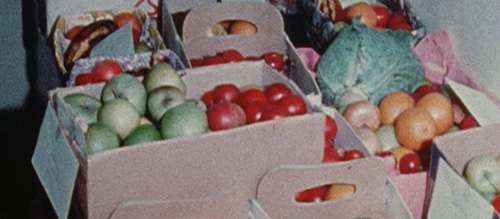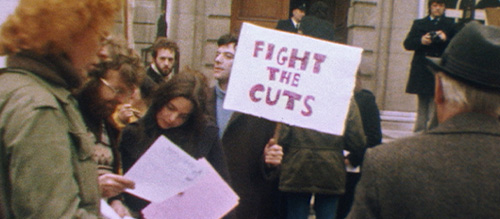Cost of Living (2022) Short Film Review
Cost of Living (2022)
Editor: Andy Burns
We are living through a cost of living crisis that is causing sleepless nights for millions, affecting the health of millions more, and halting the progress of so many young minds. And yet, rather than gifting public voices to those most affected, or providing any meaningful confrontation to the sources of such abject misery, our media seems concentrated on inundating us with self-help guides, get-rich-quick schemes, the diaries of the lives of the ultra rich, and a news cycle that presents facts and figures without any explanation. In an era of information lacking contextualisation, Cost of Living is fifteen powerful minutes of contextualisation; a short film that brings into focus the humanity behind the figures, that reveals the historical cycle of what we so often consider to be contemporary struggles.
The classism inherent to British society, and indeed its use of the visual form to paint a skewered portrait of itself, is confronted head-on in Cost of Living (2022), as within the first minute traditionally upbeat British orchestral music accompanies a montage of prospective parliamentary folk attending training at a stately home. As the candidates arrive at the idyllic story book version of Great Britain (complete with garden deer) suited up and smiling, the period-appropriate narrator describes their need for training and preparation before taking on “great responsibility”, his grainy and proper British narration contradicted by the games of cricket and the fox hunting each candidate partakes in during the accompanying montage. “How many points of policy have had their beginning in just such a group discussion as this?” He asks, as anyone familiar with British politics and historical classism begins to question how these people can possibly connect to the needs of the average person. It’s a sequence beautifully punctuated by a northern voice responding to a parliamentary campaigner just seconds later with the words “I’m fed up of the lot of them. None of the parties seem to do anything for people like me.” As she slams her door, the extremely current buzz-term for a national crisis of inflating costs and the impoverishment of millions acts as the title card: “Cost of Living”. With it comes the clarity that the current national anxiety experienced by so many of us in modern Britain is not just an issue for now, but sadly a tale as old as time.
The following fourteen minutes of archival footage provided to the Cinema and Social Justice Project at York St. John University by the Yorkshire Film Archive and the North East Film Archive paint a more fractured picture of the United Kingdom, one more akin to the real experiences that so many of its folk live through. Like all good documentaries, Cost of Living enlightens us with regard to things so much of the content of our time is failing to inform us about. As we witness the violence of desperate rebellion in riots and marches juxtaposed with the kindness and grace of sharing warm soup on a terribly cold day, the realities of the people not often featured on television and even more scarcely celebrated on film are made to feel of immediate concern, their struggles for warmth, food, housing and nursery places more relatable than they ought to be in a 21st century world.

There is no escaping the sadness that comes with witnessing such poverty and destitution, yet more pertinently Cost of Living is powerful enough to act as a spark to any existing anger or resistance towards the constitutionally-mandated destitution enforced in our current post-Brexit, post-COVID era. In witnessing the realities of people just like us, who could be our uncles, our grandmas, our great grandparents or someone else we might know – in watching them struggle with the isolation of modern standardised housing and the trauma of not being able to stay warm or feed themselves – there is a rage captured that is akin to that of the rage present in Ken Loach’s I, Daniel Blake (2016), a truth that would make many feel uncomfortable and make others feel seen.
At just fifteen minutes long, it is quite remarkable how Cost of Living constructs a sense of reality, how its use of archival footage becomes warm but ever so powerful. By film’s end, Cost of Living will have you raising a fist in defiance at the trauma caused to your people by a ruling class of elitist snobs, and if you’re even remotely tuned into contemporary politics or the financial issues of our time you will no doubt see the desperation of these people in yourself and your loved ones.
The reality of the United Kingdom is that historically it has been so unkind to so many, and that wedge issues of one-time unimportant things are used to divide and conquer the largest group of least wealthy people, ensuring that we dare not rise to ask for what we deserve. In highlighting this struggle, and presenting it so concisely and with such contemporary relevance, Cost of Living spreads its most powerful message: “These are people. They feel unwanted, they feel unloved.” We should all agree that they… that we… deserve more than that.
Score: 24/24


